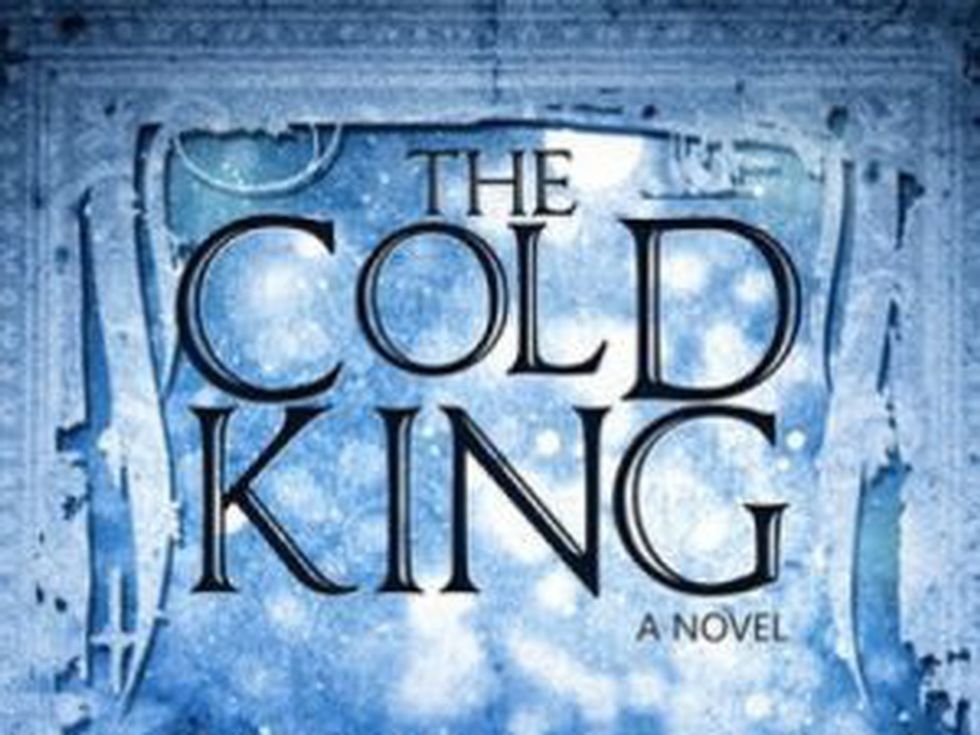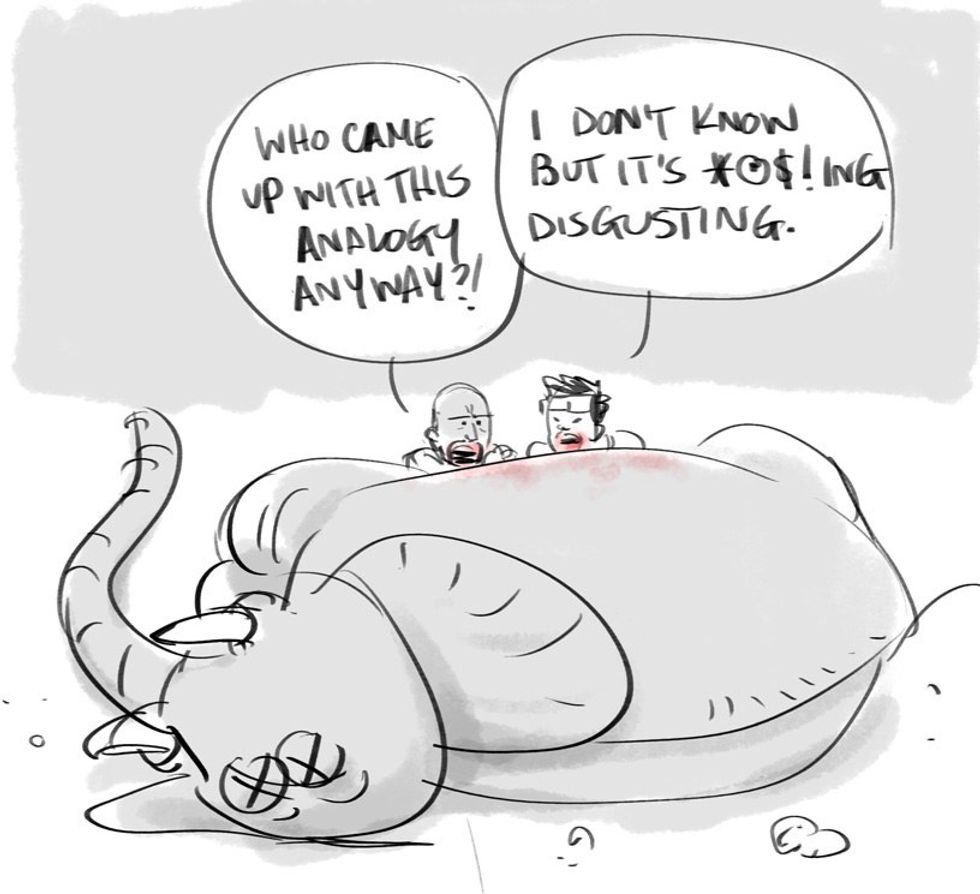Misogyny in literature is a theme you would think has been eradicated, but you would be wrong. Unfortunately, misogyny, rape-apology and helpless-girl tropes still run rampant in literature, most alarmingly in young adult literature. I recently had the immense displeasure to read what appears to be the magnum opus of misogyny in literature.
"The Cold King" by Amber Jaegar promised me a refreshing retelling of the beloved "Beauty and the Beast" story (which also has its own faults, but that's a topic for another article). But instead, what I got was both literarily and morally disappointing.
The characters were generic and vanilla, we only ever get to know the background of two or three of them, even though there are perhaps five or six main ones, and the main protagonist, Calia, is as vapid and willowy as they come. Not one of the characters received proper characterization by this clearly subpar and inexperienced author; nothing beyond "she was ugly and useless and then became beautiful and useful literally overnight after a year of servitude in the castle." Not only was Calia's characterization stunted and rapid, but it also did nothing to advance the plot. In the beginning, right after she became a servant in the castle, she was useless and clumsy and cried all the time. And then one night she literally just stopped crying and the next day she became near perfect at her duties and changed her mind about the king she had previously believed with all her heart was horrible and cruel. She promised herself she'd never be nice to him and then in that same night she became a domestic goddess she suddenly developed an affection for her captor as well. The author offered no reasoning behind it other than "she finally came to terms with her predicament," which would be fine, but we never got to fully understand what the predicament was? Overall it was a shoddy characterization attempt and it was clear the author just got lazy at the end.
In terms of the plot, it was clear what the plot was SUPPOSED to be: a young woman overcomes adversity in her life and her dislike of the king she previously thought cruel and cold to enhance his life and ingratiate herself into his heart against all odds, melting the ice walls he had built up around his heart and liberating the castle from his grip. However, what came across was a dumb girl from the village lost all her moxy and strength almost immediately upon entering the castle. She initially insisted that she would never love the king or even like him, believing him cruel and her kidnapper essentially. But after spending only a little bit of time with this man, she changes her mind because he gives her gifts and a room to sleep in, after LITERALLY ingraining in her brain that she is his property and she relies on him for everything. What a joke.
I won't even BEGIN to talk about the problematic uses of the ugly-to-pretty-girl, misunderstood-villain, and tragic-love-story tropes that are used because I'll be here all day.
Instead I'll move on to the misogynistic, victim blaming, abuser apologist, and stockholm syndrome that is blatantly prevalent throughout this miserable novel.
The final tally for the Cold King is as follows: locks Calia up in a cold dungeon TWICE, (the first time when she initially arrives in order to "ease the transition into her new life" and to teach her that she must rely on the king for everything, essentially breaking down her spirit and building it back up to his liking to satisfy his controlling personality, and the second time when he was angry at her for refusing to lock a PREGNANT WOMAN in the cold cellar, so he locks her there instead without food, a blanket, and with the window open in the middle of the winter. She almost freezes to death), sends her back to her mother's house when he knows it was an abusive, loveless place and it makes her uncomfortable, once again to assert his power over her I'm assuming, constantly berates her and insults her looks and intelligence without offering a comforting word once in a while, continually reminds her that she is his property and everything she has is a gift from him and she should be grateful to him always for this, and not only does he not believe her when she comes running to him from the village where she's been assaulted and almost raped, but sends her away back to her attackers because he was angry she saw him without his mask on (he has ugly burns and thinks himself unattractive whoop dee doo). That's literally a paragraph of what an abusive and manipulative man he is, and yet Calia STILL RETURNS TO HIM EVERY TIME. He has nearly KILLED HER in his anger and pride, and she keeps coming back for more, the literal description of someone suffering from Stockholm Syndrome as well as someone trapped in an abusive relationship. He never raises a hand to her, but the mental and secondary physical abuse she suffers from his ignorance and anger is inexcusable, and the only excuse he DOES offer, when he finally gets around to apologizing, is "I'm sorry I'm such a bad man, please stay with me and I'll never do it again." Are you KIDDING ME?
I understand that the whole faux-abusive men in power trope is popular these days thanks to the deplorable and disgusting "50 Shades of Grey," but there HAS to be a limit to the blatant misogyny present in today's romance novels. "The Cold King" is literally an abusive manipulator, and numerous times throughout the novel Calia tries to leave but by her own admission she has nowhere else to go, so she inevitably ends up back in his palace.
He's a narcissistic, manipulative, unstable and abusive man and yet somehow, someway, Calia STILL falls in love with him, SOMEHOW he is STILL painted as the misunderstood victim because poor him, his mom and sister died long ago and he was cursed to finally take responsibility for his actions after unintentionally killing hundreds of people in an irresponsible party.
This culture of having the woman with no choices, no prospects, and no self-esteem falling in love with her abuser, her kidnapper, her master, is disgusting and only perpetuates the rampant misogyny in our culture. Shame on you, Amber Jaeger, for contributing to this disgusting culture.
The harm from presenting such tropes geared towards a younger audience is fast creating a generation of young women who do not value themselves, and it needs to stop.





 Photo by
Photo by  Photo by
Photo by 
 Photo by
Photo by 


















